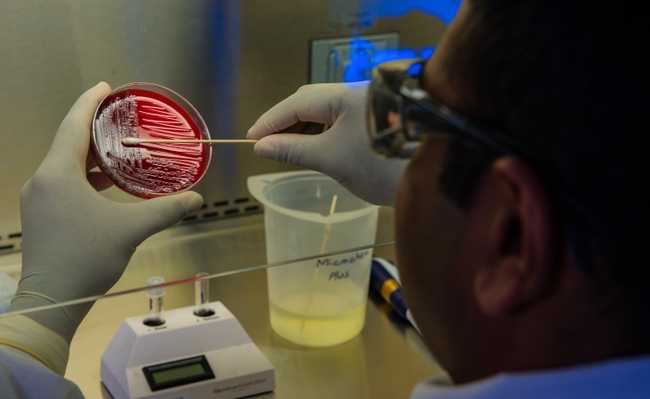Pernicious anemia: symptoms, treatment, diagnosis and causes
If left untreated, pernicious anemia can lead to serious complications. Understand

What is pernicious anemia?
Anemia, in general, is a medical condition in which red blood cell levels are below normal. Pernicious anemia, in turn, is a type of anemia that occurs due to vitamin B12 deficiency.
Pernicious anemia is caused by the body's inability to absorb the amount of vitamin B12 needed to make red blood cells. However, pernicious anemia is a rare condition, with a prevalence of 0.1% in the general population and 1.9% in people over 60 years, according to the Journal of Blood Medicine.
This type of anemia is called "pernicious" because it was once considered a deadly disease. This was due to the lack of available treatment. Today, however, the disease is relatively easy to treat with vitamin B12 injections or supplements. However, if left untreated, vitamin B12 deficiency can lead to serious complications.
Symptoms of Pernicious Anemia
The progression of pernicious anemia is slow. So it can be difficult to recognize your symptoms.
Commonly Ignored Pernicious Anemia Symptoms:
- weakness
- headaches
- chest pain
- weight loss
In rare cases of pernicious anemia, people may experience neurological symptoms that can include:
- unsteady walk
- stiffness and tension in muscles
- numbness in arms and legs
- progressive spinal cord injuries
- memory loss
Symptoms of B12 deficiency, which can overlap with pernicious anemia, include:
- nausea and vomiting
- mental confusion
- depression
- constipation
- loss of appetite
- heartburn
Causes of Pernicious Anemia
Lack of vitamin B12
People with anemia have low levels of normal red blood cells (RBCs). Vitamin B12 plays a role in creating red blood cells, so the body requires an adequate intake of vitamin B12. This vitamin can be found in foods such as:
- beef
- domestic birds
- shellfish
- eggs
- dairy products
- fortified soy, walnut and rice milks
- nutritional supplements
intrinsic factor deficiency
Your body also needs a type of protein called intrinsic factor (IF) to absorb vitamin B12. Intrinsic factor is a protein produced by cells in the stomach. After you consume vitamin B12, it travels to your stomach, where it binds with IF. Both are then absorbed in the last part of the small intestine.
In most cases of pernicious anemia, the body's immune system attacks and destroys the IF-producing cells in the stomach. If these cells are destroyed, the body cannot produce IF and cannot absorb vitamin B12.
macrocytes
Without enough vitamin B12, the body will produce abnormally large red blood cells called macrocytes. Due to their large size, these abnormal cells may not be able to leave the bone marrow, where red blood cells are produced, and enter the bloodstream. This decreases the amount of oxygen-carrying red blood cells in the bloodstream and can lead to fatigue and weakness.
Pernicious anemia is a type of macrocytic anemia. It is also sometimes called megaloblastic anemia because of the abnormally large size of the red blood cells produced.
Pernicious anemia is not the only type of macrocytic anemia. Other causes of abnormally large red blood cells include:
- long-term use of certain medications and antibiotics such as methotrexate and azathioprine
- chronic obstructive pulmonary disease (COPD)
- chronic alcoholism
- folate (vitamin B-9) deficiency caused by poor diet or conditions that affect its absorption
B12 deficiency and pernicious anemia
Other vitamin B12 deficiencies, such as those caused by diet, are often confused with pernicious anemia. However, pernicious anemia is an autoimmune disorder. It results from a lack of IF and malabsorption of B12. This vitamin deficiency can be treated by changing the diet or taking a B12 supplement.
In people with B12 deficiency or another type of anemia, the body can absorb B12. On the other hand, someone with pernicious anemia finds it more difficult to do so. Pernicious anemia is also seen in children who are born with a genetic defect that prevents them from producing IF.
- Vitamin B12: know what it is for, where to find it and its importance
Risk factors for pernicious anemia
Some individuals are more likely than others to develop pernicious anemia. Risk factors include:
- have a family history of the disease
- be of northern European or Scandinavian descent
- have type 1 diabetes
- have an autoimmune disease
- have intestinal illnesses such as Crohn's disease
- having had part of your stomach or intestines removed
- be 60 years old or more
- be strict vegetarian and not take B12 supplement
The risk of developing pernicious anemia also increases as a person ages.
Diagnosis of pernicious anemia
To make the diagnosis of pernicious anemia, it is necessary to perform some tests such as:
- Complete blood count: This test measures vitamin B12 and iron levels in the blood.
- Vitamin B12 Deficiency Test: Your doctor or doctor may check your vitamin B12 levels through a blood test. Low levels indicate a disability.
- Biopsy: You may need to perform a biopsy on the walls of your stomach to check for pernicious anemia.
- IF Deficiency Test: Intrinsic factor deficiency is tested using a blood sample. Blood is tested for antibodies against IF and stomach cells.
Treatment for Pernicious Anemia
The treatment of pernicious anemia is a two-part process. The first part consists of:
- application of vitamin B12 injections that are reduced over time
- Complete blood count to measure vitamin B12 and iron levels in the blood
- blood tests to monitor replacement treatments
Vitamin B12 injections can be given daily or weekly until levels return to normal (or close to normal). During the first few weeks of treatment, cessation of physical activity may be recommended. Once your vitamin B12 levels are normal, all you need to do is check it once a month.
With B12 normalization, the doctor or doctor may recommend B12 supplements instead of the injection. They come in pills, nasal gels and sprays.
Complications of Pernicious Anemia
You may need to monitor the patient for the long term. This will help identify possible complications of pernicious anemia. The most dangerous complication is gastric cancer, which can be detected early with a stomach biopsy.
Other potential complications of pernicious anemia include:
- nerve damage
- digestive tract problems
- memory problems, confusion or other neurological symptoms
- heart problems
These complications usually originate from long-lasting pernicious anemia and may be permanent.
Talk to your doctor if you think you have symptoms of pernicious anemia. Early diagnosis, treatment and close monitoring are important to avoid future problems.










